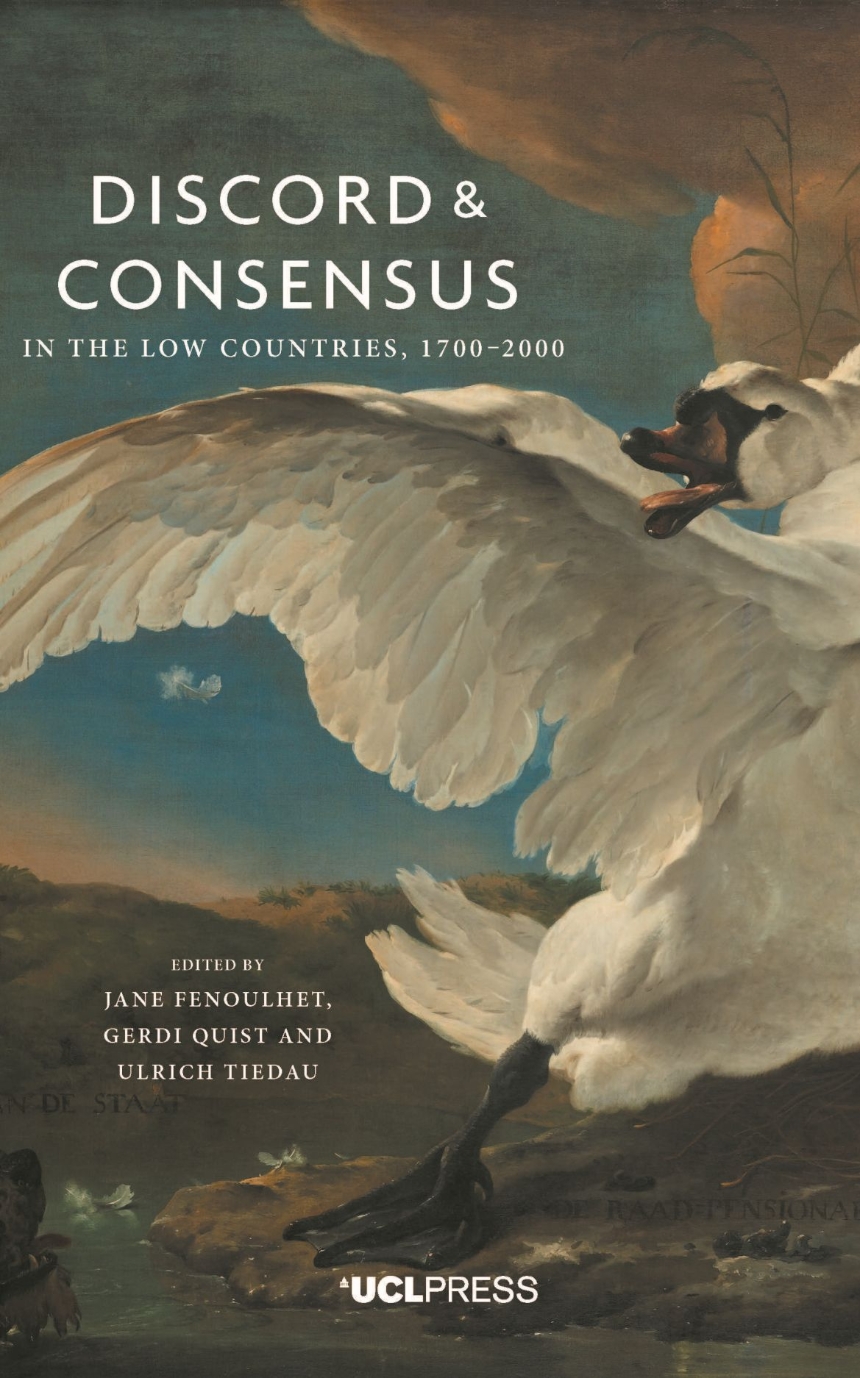Distributed for UCL Press
Discord and Consensus in the Low Countries, 1700-2000
All countries, regions and institutions are ultimately built on a degree of consensus, on a collective commitment to a concept, belief or value system. This consensus is continuously rephrased and reinvented through a narrative of cohesion and challenged by expressions of discontent and discord. The history of the Low Countries is characterised by both a striving for consensus and eruptions of discord, both internally and from external challenges. This interdisciplinary volume explores consensus and discord in a Low Countries context along broad cultural, linguistic and historical lines. Disciplines represented include early-modern and contemporary history; art history; film; literature; and translation scholars from both the Low Countries and beyond.
234 pages | 6.14 x 9.21 | © 2016
Free digital open access editions are available to download from UCL Press.
History: General History
Literature and Literary Criticism: General Criticism and Critical Theory
Table of Contents
"Introduction: discord and consensus in the Low
Countries, 1700–2000
Ulrich Tiedau
1. Pre-modern Dutch identity and the peace celebrations of 1748
Lotte Jensen
2. Gnawing worms and rolling thunder: the unstable harmony
of Dutch eighteenth-century literature
Inger Leemans and Gert-Jan Johannes
3. A twice-told tale of a (dis)united kingdom: Thomas Colley
Grattan’s History of the Netherlands (1830, 1833)
Raphaël Ingelbien and Elisabeth Waelkens
4. A conflict in words and images, or a conflict between word and
image? An intermedial analysis of graphic novel adaptations
of Hendrik Conscience’s The Lion of Flanders (1838)
Christine Hermann
5. Language controversies in the Gazette van Detroit (1916–1918)
Tanja Collet
6. ‘Beyond A Bridge Too Far’: the aftermath of the Battle
of Arnhem (1944) and its impact on civilian life
Reinier Salverda
7. ‘A sort of wishful dream’: challenging colonial time and
‘Indische’ identities in Hella S. Haasse’s Oeroeg, Sleuteloog
and contemporary newspaper reviews
Stefanie van Gemert
8. Reinstating a consensus of blame: the film adaptation
of Tessa de Loo’s De tweeling (1993) and Dutch
memories of wartime
Jenny Watson
9. Harmony and discord in planning: a comparative
history of post-war welfare policies in a Dutch–German
border region
Marijn Molema
10. Dutch in the EU discourse chain: mimic or maverick?
Suzie Holdsworth "
Countries, 1700–2000
Ulrich Tiedau
1. Pre-modern Dutch identity and the peace celebrations of 1748
Lotte Jensen
2. Gnawing worms and rolling thunder: the unstable harmony
of Dutch eighteenth-century literature
Inger Leemans and Gert-Jan Johannes
3. A twice-told tale of a (dis)united kingdom: Thomas Colley
Grattan’s History of the Netherlands (1830, 1833)
Raphaël Ingelbien and Elisabeth Waelkens
4. A conflict in words and images, or a conflict between word and
image? An intermedial analysis of graphic novel adaptations
of Hendrik Conscience’s The Lion of Flanders (1838)
Christine Hermann
5. Language controversies in the Gazette van Detroit (1916–1918)
Tanja Collet
6. ‘Beyond A Bridge Too Far’: the aftermath of the Battle
of Arnhem (1944) and its impact on civilian life
Reinier Salverda
7. ‘A sort of wishful dream’: challenging colonial time and
‘Indische’ identities in Hella S. Haasse’s Oeroeg, Sleuteloog
and contemporary newspaper reviews
Stefanie van Gemert
8. Reinstating a consensus of blame: the film adaptation
of Tessa de Loo’s De tweeling (1993) and Dutch
memories of wartime
Jenny Watson
9. Harmony and discord in planning: a comparative
history of post-war welfare policies in a Dutch–German
border region
Marijn Molema
10. Dutch in the EU discourse chain: mimic or maverick?
Suzie Holdsworth "

